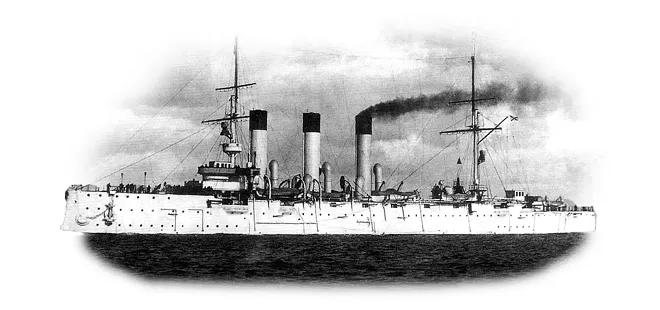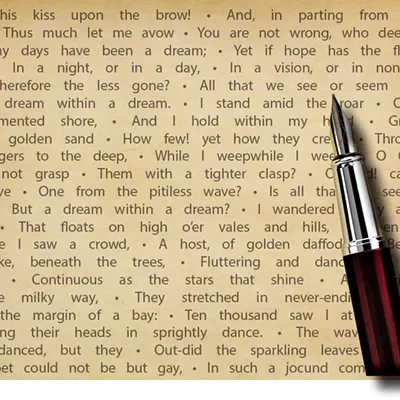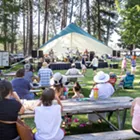In James Wright's poem, "Autumn Begins in Martins Ferry, Ohio," the speaker describes the annual tradition of watching a high school football game, and in the moment the poem captures, he also captures what it is like to live in that place and time.
So what is it like to live in this place in this time? I have lived in Spokane for most of my life, and in the past few years, I have been amazed by the poetry people here are writing — both the quantity and the quality. Our schools and colleges are bringing local and national poets to classrooms and stages. Our annual Get Lit! festival offers poetry readings and workshops to both adults and youth. Spark Central offers poetry classes and evenings devoted to silent reading and writing. And our local poetry-slam community deserves a large amount of credit for Spokane's poetic renaissance: Every Wednesday night at 6:30 at Neato Burrito, poets meet to take their turns at the mic, to eat cheap grilled cheese sandwiches and sit in the booths and stand along the windows and cheer for each other. On the first Sunday night of every month, Boots Bakery hosts its slam; on the third Monday, you can listen to or perform poems at The Bartlett. And I'm only listing a few of the literary opportunities Spokane offers. When I was growing up (back in the day, as my students say), I only had my books as examples and my poor brother as an audience. Now the whole city has something to say.
And we're saying it in images. In Robert Hass' excellent book of essays on contemporary poetry, Twentieth Century Pleasures, he says, "Images haunt. There is a whole mythology built on this fact: Cezanne painting til his eyes bled, Wordsworth wandering the Lake Country hills in an impressioned daze...Tu Fu said, 'It is like being alive twice.'" Local poets are giving all of us this gift of being more alive. In 2014, Thom Caraway and Jeff Dodd celebrated poems featuring Spokane in Railtown Almanac. In the spring of 2017, poems from the I Am a Town project will be published on the streets of Spokane. The places people have written about for this project include Manito Park, 2 Swabbies, La Chapina in the old River Park Square, the bar Stray downtown, the Campbell House, Marycliff, the bus plaza, the old Crescent, Kendall Yards, the Women and Children's Free Restaurant, the Golden Rule Brake shop, and of course, our river.
Lately, I have been a little obsessed with the musical Hamilton, which has a refrain that goes "How lucky we are to be alive right now." Of course, in the context of the Revolutionary War, this meant they were lucky because they were called to action. We are lucky too, living in a time that calls us to "rise up" (another Hamilton song) by putting ourselves "back in the narrative" (yet another one).
Perhaps the best example of what is taking place right now in terms of poetry and art in Spokane is what happened on Dec. 6 at Terrain's post-election art event called Rally! Artists and writers shared work that expressed their feelings about what it means to be alive right now, in this place and time. Walking around the gallery that night, I was inspired by how our visual and literary arts both represent who we are right now and help us imagine who we can become. ♦
Laura Read is Spokane's current poet laureate.
100-Year-Old Box of Negatives Discovered by Conservators in Antarctica
The mold on the picture makes a lattice design
around the door of the Aurora
where scientist Alexander Stevens
stands, amazed that after all these years
adhered to the other negatives,
someone has separated and restored him
so even the mold on his picture
fascinates like the intricate shadows
of leaves around a house, the kind of house
he once lived in, he remembers,
reaching far back before the one hundred years
of ice, before the Aurora blew off in the storm,
before they even left on the expedition
to stock the depots for Shackleton.
He has dark hair and a beard,
he's wearing one of those pea coats,
and he looks like a man I could love,
his hands on his hips as if daring me to,
as if it were even possible
because what is a century or a continent?
Didn't he travel from Glasgow
to Antarctica to walk across an Ice Shelf
my feet will never touch?
Couldn't I at least do something,
like look out at the sun setting here
in North America in the late afternoon
on the first day of February, 2015,
a thin pink streak above the snow,
and think of him for a moment
standing there in history,
feeling his way towards the pole?












